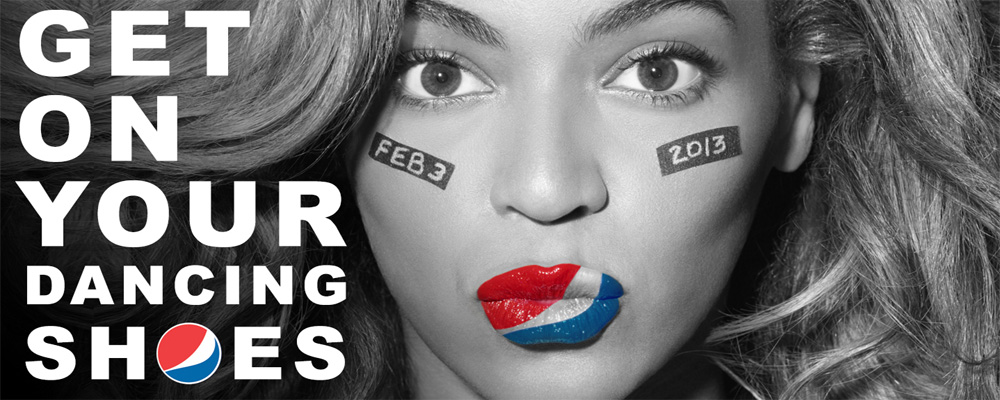Celebrity endorsements are a staple of brand marketing. Product and celebrity have always gone hand-in-hand, wooing consumers with finely-spun tales and selling not just items, but aspirational lifestyles, too.
However, flash forward to 2013 and we’re swamped with highly paid celebrities hawking everything from current accounts to toothpaste, all the while trying to appeal to the aspirations of consumers. But with those consumers empowered both by an abundance of choice and a wealth of information, they’re now in a position to question whether those brand promises really are true and whether the brand is truly worth buying in to. As such, those emotional connections seem to be waning, with price taking precedence instead.
It’s a reflection on the declining influence of celebrities in this space that brands are struggling to make such connections, in no small part due to the fact that so many brands see endorsement as a quick fix and easy path to credibility. Recent research into the beauty and cosmetics sector, one of the most highly-invested sectors for TV advertising, shows that (despite the big budgets) it has relatively low influence over consumer spending compared to sampling, advice and shop floor sales promotion – which can be just as effective at a fraction of the price it takes to hire a Brad Pitt or Scarlett Johansson.
Indeed, when you see Beyonce overacting for Pepsi or Kobe Bryant and Lionel Messi trying to convince you they fly Turkish Airlines out of choice, it’s clear that there’s been very little consideration as to how well the brand and celebrity fit together. Instead, it’s simply a high-spending brand throwing cash at a problem and expecting results.
Don’t get me wrong, some brands get it right. Kevin Bacon cleverly delivers a simple message for EE, while David Beckham’s recent turn with Belstaf is little short of genius. Here’s a traditional brand that wants to appeal to a demographic and establish itself (for growth) in the eyes of those who quite simply consider Beckham the coolest kid on the block, but may have spent similar time considering their association with more renowned brands such as Barbour, Burberry or any other of the B’s.
SEE ALSO: A Digital Leader Looks at the Agency of Tomorrow
In fact, I think the greatest lesson here could perhaps be taken from one of the most unlikely of sources – One Direction – a modern-day superbrand that taps perfectly into the emotions of its audience. The product is one thing, but the 1D brand – the way in which they are portrayed and engage with their audience via everything from concerts to TV to social media – is carefully considered by a crack team of brand specialists. Undeniably, it’s an immaculate matching of brand, product and celebrity.
Ultimately, in the modern marketplace, consumer purchasing decisions will continue to be pushed away from emotion towards price and value. It takes an exceptional celebrity and complementary brand partnership to reach that emotional frequency. If the consumer is going to trust in the endorsement from the celebrity, then they’re going to have to trust in the partnership between brand and celeb, as well. Every brand wants to appeal to your senses and make you that lifetime customer, but is Jane Fonda and an ex-Desperate Housewives actress really enough to make you buy that magical wrinkle cream?
The A-List
Bet365 & Ray Winstone – In recent years, sponsorship within sport has become increasingly dominated by a single sector: Gambling. Achieving standout is no mean feat, but Bet365 have successfully leveraged a partnership with Winstone and parlayed that with a presence at the halftimes of every major football match on air. Regardless of the ethical issues surrounding gambling, it’s impossible to deny Winstone’s popularity, played to perfection for the target audience with just the right amount of tongue-in-cheek humour and self-deprecation on the part of the star.
Waitrose & Heston Blumenthal – These two are so loved up and perfect for each other it’s almost nauseating. The increasing consumer concern for fresh food, provenance and healthier eating has seen a significant shift away from value-ranges towards decidedly more middle-class offerings like Waitrose, where a little extra cost is well worth paying – something that decidedly sets FMCG apart from other sectors. Therefore, bringing TV-friendly and highly aspirational super chef, Heston Blumenthal, was an inspired decision. Despite his many Michelin stars, Blumenthal’s inquisitive nature, exuberance and most important accessibility makes him a perfect fit.
Straight to DVD
Activia & Gok Wan – A celebrity may have all the right hallmarks for a winning partnership, but only a select few can carry off multiple partnerships without looking overexposed. Unfortunately, Gok Wan’s high-energy act for Activia falls on the wrong side of the line.
HTC & Robert Downey Jr. – Unlike Toy Story, HTC is a prime example of a brand investing in a celeb ambassador and expecting his star quality to do the rest. It’s difficult to find a more charismatic, in-demand actor than RDJ – and probably difficult to find one more expensive too – which makes it all the more awkward when the commercial partnership ends up looking just like that: Commercial and contrived.
The Z-List
Head and Shoulders & Joe Hart – The worst-case scenario is when a celebrity takes on a brand partnership and actually comes out worse. Joe Hart is already facing a tough enough time from the sports media, but sacrificing your dignity – without a hint of irony – is a sure-fire lose-lose situation all around.
Santander and Jessica Ennis-Hill, Jensen Button and Rory McIlroy – It’s perhaps unfair to expect sports stars to naturally take to the world of acting, but it is valid to question promoting loans and mortgages in such a banal fashion. When Ennis-Hill wants to start lecturing me on health, fitness and becoming a world class athlete, I’ll take note. Getting 1% cash back on my mortgage payments? Not so much.
